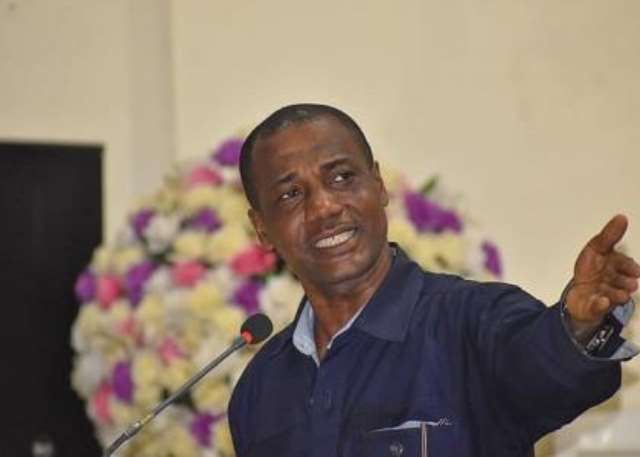Jacob Osei Yeboah (JOY2012), a former independent presidential candidate, has commended President John Dramani Mahama’s decision to remove suspended Chief Justice Gertrude Sackey Torkornoo, characterizing it as a decisive action reflective of Mahama’s “Reset Agenda” and a testament to his statesmanship. JOY lauded the President’s composure, generosity, and unwavering adherence to constitutional processes, emphasizing that Mahama’s approach to leadership embodies what he terms “Lion-Leadership traits”. He highlighted the President’s emotional intelligence, strict observance of the 1992 Constitution, and unflappable boldness as key indicators of this leadership style. According to JOY, Mahama’s handling of the situation not only preserved the judiciary’s integrity but also reinforced Ghana’s democratic resilience, asserting that even those politically aligned with the dismissed Chief Justice would find it difficult to criticize the President’s meticulous adherence to due process.
JOY acknowledged that the public remains largely uninformed about the specifics leading to Justice Torkornoo’s removal, yet he emphasized the gravity of the committee’s findings, suggesting they were sufficiently serious to warrant her disqualification from the Supreme Court. He urged the former Chief Justice and her legal team to accept the committee’s verdict, opening the door for a potential presidential pardon if deemed appropriate by President Mahama. Shifting focus to the broader economic landscape, JOY awarded the Mahama administration a “90 percent” rating for its economic turnaround within its first 237 days, particularly commending the President’s resistance to declaring a state of emergency over illegal mining activities. He advocated for strengthened collaboration between local government officials and traditional authorities to combat this issue, proposing this as a practical approach to balancing economic development with environmental protection.
Beyond the specific case of the Chief Justice and the economic situation, JOY addressed a range of national concerns. He attributed recent incidents of arson, community conflicts, and threats against government officials to what he termed “wicked nation wreckers and false prophets,” drawing parallels to similar challenges faced by the late President John Atta Mills in 2009. He also praised Mahama’s contributions to regional diplomacy and Africa’s socioeconomic agenda, further solidifying his positive assessment of the President’s performance. However, JOY expressed concern over the premature termination of certain court cases involving members of the National Democratic Congress (NDC), urging the Attorney-General to pursue these cases to their full legal conclusion to restore public trust in the judicial system.
JOY’s commentary extended to a broader critique of partisanship in Ghanaian politics, arguing for a shift in focus towards empowering professional associations rather than political parties. He labeled political parties as “neo-colonialist tools,” echoing warnings made by Kwame Nkrumah, and suggested that Ghana’s accelerated development hinges on moving beyond partisan divisions. He concluded with a call for national unity, urging Ghanaians of all political affiliations to support President Mahama for the remainder of his term. JOY framed this as a patriotic duty, emphasizing that the President’s decision not to contest the 2028 elections should be met with reciprocal support for his current mandate.
This detailed summary expands on the original content, providing further context and elaborating on the various points raised by JOY. It breaks down his arguments into distinct paragraphs, allowing for a more structured understanding of his perspective on the President’s actions, the state of the nation, and the future of Ghanaian politics. The expanded length allows for a deeper exploration of the themes presented, emphasizing the interconnectedness between the removal of the Chief Justice, the economic situation, national security concerns, and the broader political landscape.
The extended summary provides a comprehensive overview of JOY’s statement, allowing for a deeper understanding of his arguments and perspectives. It emphasizes the interconnectedness of the various issues he addresses, from the specific case of the Chief Justice to broader concerns about national unity and the role of political parties. This detailed analysis aims to provide a richer understanding of the political climate in Ghana and the complexities surrounding President Mahama’s leadership. It highlights the importance of constitutional adherence, economic progress, national security, and the need for a more unified approach to national development. By expanding on the original content, this summary offers a more nuanced and comprehensive perspective on the issues raised by JOY.


